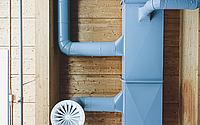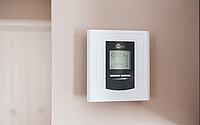6 Things You Should Know About Home-Heating Systems
When it comes to staying warm during the winter, there are many different options available. One of the most popular is a home-heating system. However, many people don’t know much about these systems and what they should consider before installing one. In this blog post, we will discuss six key things that everyone should know about home-heating systems!
1. Heating systems come in a variety of types – each with its own advantages and disadvantages
So, before investing in a new heating system, it’s important to do your research and decide which type will be best for your home.
Some of the most common types of heating systems include:
– Central Heating Systems: These work by circulating warm air throughout the home via a network of ducts or pipes. Pros: Even temperature throughout the home, can be coupled with air conditioning for year-round comfort. Cons: Can be expensive to install and maintain, and some types can be noisy.
– Radiant Heating Systems: These work by heating up the floor or walls of a room, which then radiates heat throughout the space. Pros: Can be more energy-efficient than other types of heating, and can be comfortable and evenly distributed. The benefits of radiant floor heating include greater energy efficiency, improved indoor air quality, and lower utility costs. Cons: Can be expensive to install, not suitable for all types of homes.
– Furnaces: These are the most common type of home heating systems in North America. They work by circulating warm air through the home via a network of ducts. Pros: Relatively inexpensive to install and maintain, can be coupled with air conditioning for year-round comfort. Cons: Some types can be noisy, and some homes may not have enough space for the necessary ductwork.
There are many other types of heating systems available on the market, so be sure to do your research before making a final decision.
2. Furnaces are the most common type of heating system and work by blowing heated air through ducts
It is important to have your furnace regularly serviced to ensure it is operating efficiently and safely. If you have a gas furnace, you should also be aware of the risk of carbon monoxide poisoning and take steps to prevent it.
There are several different types of furnaces, so it is important to choose the right one for your home. The size of your furnace is also important, as a furnace that is too small or too large will not be efficient. Also, there are some key differences between furnaces and air filters you should know about. Not only because they serve different purposes, but also because they need to be replaced at different intervals.
An energy-efficient furnace can save you money on your energy bills, so it is worth considering when buying a new furnace.
If you are considering replacing your old furnace, it is important to do some research and get advice from a professional before making a decision.
3. Heat pumps use electricity to move heat from one place to another, making them more energy-efficient than furnaces
In the winter, heat pumps move heat from the warm air inside your home to the cooler air outside. In the summer, heat pumps move heat from the cool air outside your home to the warmer air inside. During milder weather, a heat pump provides efficient heating and cooling for your home.
A furnace, on the other hand, uses gas or oil to create heat, which is then distributed throughout your home using a fan. While a furnace may be less expensive to install than a heat pump, it’s not as energy-efficient and will likely have higher operating costs.
4. Radiant heating systems use hot water or steam to heat up the floors or walls in a room
When radiant heating is used on the floors, it’s often called “hydronic radiant floor heating.” Radiant heating systems can be powered by electricity, natural gas, or other fuel sources. Many new homes are being built with radiant heating systems because they offer even heat distribution and can help save on energy costs.
If you have a radiant heating system in your home, it’s important to have it serviced regularly to ensure that it’s operating efficiently. You should also make sure that your insulation is adequate to prevent heat loss.
5. Ductless mini-split systems are becoming increasingly popular because they don’t require any ductwork
Sure, you don’t have to worry about your ductwork with a ductless system, but that’s not the only advantage. Ductless systems are also more energy-efficient than forced-air systems because they don’t lose any heat through leaky ducts. Plus, they’re easier to install and can be used in homes without existing ductwork.
6. If you’re thinking about replacing your home heating system, be sure to consult with a professional first!
One of the most important things to keep in mind when it comes to your home heating system is that you should always consult with a professional before making any changes or replacements. A professional will be able to assess your needs and make recommendations based on your specific situation.
In the end, however, your home heating system is a machine. As with any machine, it needs regular maintenance to function properly. By keeping up with the recommended maintenance schedule for your particular system, you can extend its lifespan and ensure that it runs as efficiently as possible.
- by Matt Watts



